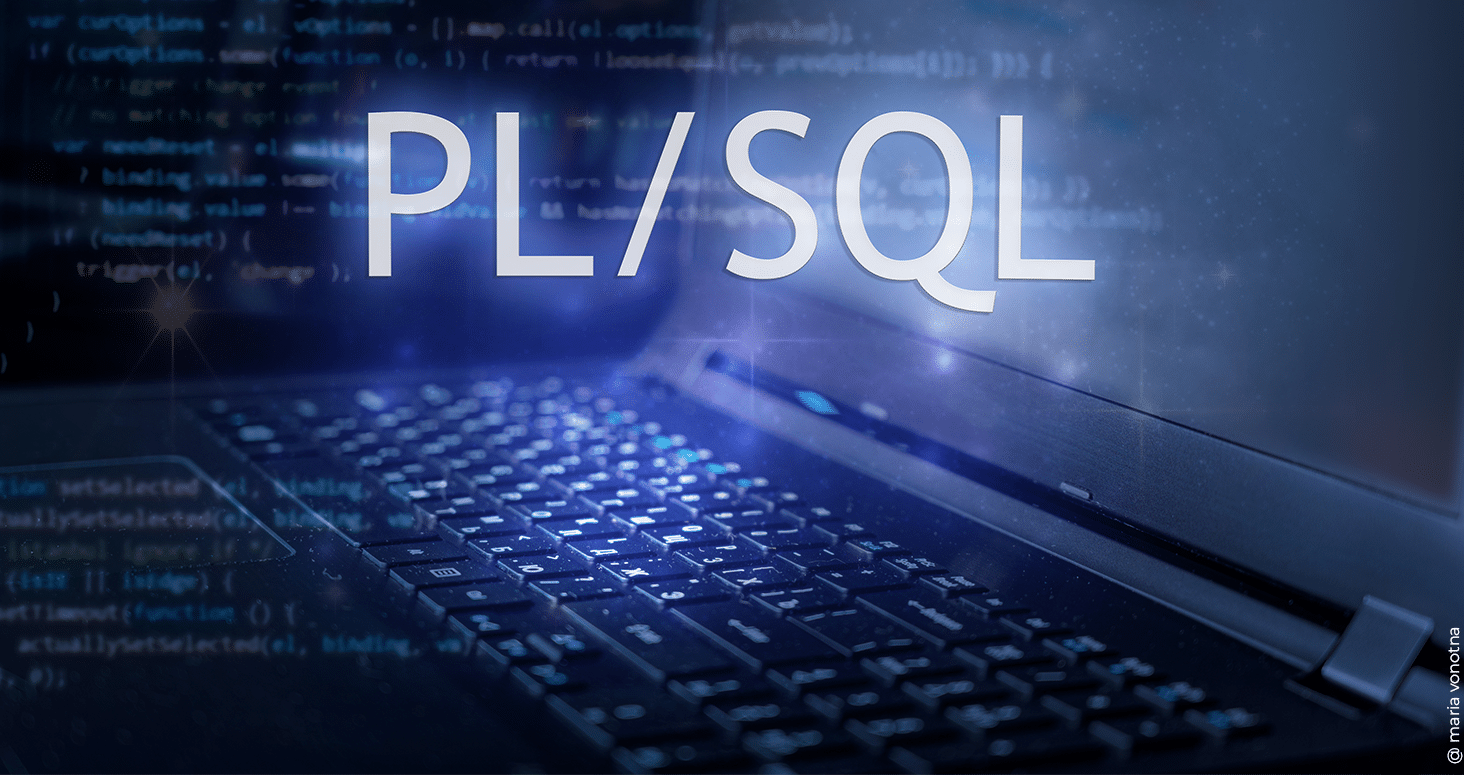Summary
Definition: PL/SQL Developer
To answer this question, let’s first define what PL/SQL is. PL/SQL stands for Procedural Language for SQL, the language provided by Oracle to develop packages, procedures, functions, and triggers.
A PL/SQL developer is a specialist who, in addition to their experience with relational databases (SQL), is also trained in writing procedural code in PL/SQL and has a good understanding of algorithms and data structures.
Why Use PL/SQL?
Many operations on data stored in a database cannot be performed solely with SQL, so there’s a good chance that a significant portion of the processing requires a procedural language. Although it’s entirely possible to correctly perform these transformations externally, for example in Python, a better alternative is sometimes to use a language that is closer to the data you’re working on. Here’s why.
PL/SQL is integrated into the Oracle database and offers various advantages that your project can benefit from. Executing code in the same place as the data eliminates the network bottleneck, which significantly speeds up performance for certain types of problems: an example might be the construction of an ETL, where data is first bulk-loaded into staging tables and then normalized, transformed, or checked for quality. Another recurring case is where a heavy data transformation is needed before storing it in a data warehouse. Furthermore, as the records are processed in the database and don’t need to be transferred to another application or server, security is enhanced.
Conversely, there are times when it is preferable to perform developments outside of the database, using Python for example, rather than in the database with PL/SQL. Especially when the data to be processed is complex, voluminous, or when some of it comes from external sources requiring interaction with other systems. Some scenarios even require combining the use of both programming languages!

Who Might Need a PL/SQL Developer?
Any project of a certain size and complexity could benefit from executing procedural code directly from the database. A notable case of using PL/SQL is in the context of an Oracle APEX project, in which there is a tight integration between the presentation layer (the web pages, so to speak), the model (the database structure), and the controller, where everything is developed in PL/SQL.
It’s important to remember that PL/SQL is a language only used by the Oracle database, but similar solutions exist for other database engines, like T-SQL in Microsoft SQL Server or PgSQL for PostgreSQL.
What Does a PL/SQL Developer Do?
A PL/SQL developer must be able to break down the tasks assigned to them and decide if it’s necessary to write PL/SQL code and how to write it to enrich the process. Then, they will design and develop the objects, structures, and packages, perform unit testing, functional testing, and stress testing. Equally important: they will take care of the evolutionary and corrective maintenance of the code as well as monitor performance and work proactively to optimise it.
What training do you need to become a PL/SQL developer?
Confirmed experience in procedural programming is necessary, even though the fundamental principles of the language can be learned through courses offered by Oracle University, some of which also lead to certification.
Let’s not forget that PL/SQL is just one programming language among others and that, although it has unique features, it can be learned relatively quickly; what really matters is how the developer uses it.

Main Features of PL/SQL?
Although strictly linked to SQL, PL/SQL is a procedural language, so it has the following features:
- Variables, objects, and object collections, they allow manipulating data directly in memory.
- Control structures such as IF-THEN-ELSE and the CASE construct.
- Iterators such as WHILE and FOR.
- Functions, procedures, and of course packages, for writing reusable code.
- Exception handling, to handle unexpected events safely during execution.
- Transaction control, which offers developers the ability to manage data integrity efficiently.
- Cursors, which allow passing parameters to a query but also retrieving data progressively and having more granular control over the records being processed.
- PL/SQL is also the language for writing triggers, which are pieces of code executed during specific events on tables or views.
- Finally, although it wasn't specifically created for this purpose, PL/SQL can be used to generate dynamic SQL queries directly in the database.
The Qim info Approach
Have you identified a bottleneck in one of your development projects? At Qim info, our engineers bring your ideas to life by designing the development that suits you!
Flexible and adaptable, with over 120 clients in various sectors, Qim info is your trusted IT services provider! Qim info stands out for its ability to understand the specific needs of each client, and helps you find the missing piece for your project.
Our services are numerous and specific—technical support, infrastructure management, cybersecurity, data management, cloud solutions, IT consulting, project management… And in our Centre of Expertise, a team of development specialists is there to help you produce custom software or an application for your business.
F.A.Q.
How much does a PL/SQL project cost?
There’s no straightforward answer to this question, as it all depends on the size and complexity of each project, which, by the way, most of the time doesn’t just include PL/SQL development. However, an Oracle database comes by default with PL/SQL. Therefore, if your data is on an Oracle database, you already have PL/SQL in your toolkit.







